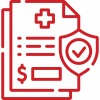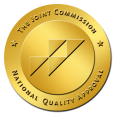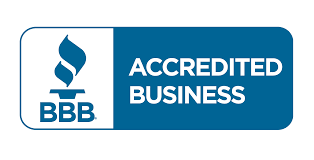

Alcohol Use Disorder (AUD) is more than “heavy drinking.” It’s a chronic medical condition in which the brain becomes wired to depend on alcohol, making it hard to stop despite mounting consequences.
Nationwide, an estimated 28.9 million people aged 12+ met criteria for AUD in 2023 —nearly one in ten Americans.
Closer to home, Kentucky loses roughly 2,200 residents to excessive alcohol use each year and ranks above the national average for binge-drinking and alcohol-related mortality.
Louisville Addiction Center addresses this public-health crisis with a flexible continuum of evidence-based care.
Whether a client needs the structure of a Partial Hospitalization Program (PHP), the balance of an Intensive Outpatient Program (IOP), or the step-down support of standard Outpatient (OP), our multidisciplinary team personalizes treatment plans that fit work, school, and family commitments.
This page explains how alcohol addiction develops, why it hits Kentuckians hard, and how comprehensive treatment at a trusted Kentucky alcohol addiction treatment center can help people reclaim their lives.
In everyday terms, Alcohol Use Disorder means drinking has crossed the line from habit to harm. Clinicians rely on the DSM-5 to make the call, but the red flags are easy to spot: you need more alcohol to feel the same buzz, you feel shaky or sick when you skip a drink, and you just can’t seem to quit even when you want to.
Nationally, AUD accounts for nearly six in ten substance-use disorders reported in 2023.
Kentucky’s relationship with alcohol is uniquely severe. CDC data compiled by the National Center for Drug Abuse Statistics show the Commonwealth averages 2,206 alcohol-attributable deaths each year, translating to about 6.3 deaths per 10,000 adults—one of the highest per-capita rates in the Southeast.
On the roadways alone, state records reveal 153 alcohol-related fatal crashes claimed 181 lives in 2020, a 38 percent jump from the previous year.
Together, these consequences explain why comprehensive alcohol addiction treatment and rehab—delivered through levels of care like PHP, IOP, and OP—remains an urgent need across Louisville and the wider Commonwealth.

Set yourself free from the struggles of addiction and co-occurring mental health disorders. Reach out to our treatment team in Louisville, Kentucky today.
“Alcohol Rehabs in Louisville” is a broad phrase that covers every program—hospital detox units, nonprofit clinics, private facilities, and community support groups—that evaluates and treats Alcohol Use Disorder in the metro area.
A quick search for alcohol rehab in Louisville, KY, will return a long list of options.
Among them, Louisville Addiction Center stands out for its fully integrated, evidence-based model that begins with a meticulous diagnostic process and ends with a personalized aftercare roadmap.

On the first day of care, a multidisciplinary team at Louisville Addiction Center—physicians, nurse practitioners, licensed therapists, and case managers—conducts a 360-degree evaluation that explores:
Dual diagnosis screening is critical; national research shows that more than half of adults with Alcohol Use Disorder also live with at least one mental health condition.
Identifying those overlapping issues on day one allows Louisville Addiction Center to build a coordinated plan that treats the whole person instead of focusing solely on alcohol use.

Once the assessment is complete, each client enters the level of care that best matches clinical needs—Partial Hospitalization Program for daily structure, Intensive Outpatient Program for balanced support, or standard Outpatient care for maintenance and relapse-prevention.
Core interventions include:
When clinically indicated, providers may incorporate Medication-Assisted Treatment with FDA-approved medications like naltrexone, acamprosate, or disulfiram. These medications can reduce cravings, diminish alcohol’s rewarding effects, or create an aversive response to drinking.
Pharmacotherapy is always paired with psychotherapy and medical monitoring, mirroring best-practice guidelines from the National Institute on Alcohol Abuse and Alcoholism.
By pairing a rigorous diagnostic framework with a layered menu of proven interventions, Louisville Addiction Center delivers highly individualized, adaptable care, laying the groundwork for sustainable recovery right here in Kentucky.
When clinically indicated, providers may incorporate Medication-Assisted Treatment with FDA-approved medications like naltrexone, acamprosate, or disulfiram. These medications can reduce cravings, diminish alcohol’s rewarding effects, or create an aversive response to drinking.
Pharmacotherapy is always paired with psychotherapy and medical monitoring, mirroring best-practice guidelines from the National Institute on Alcohol Abuse and Alcoholism.
By pairing a rigorous diagnostic framework with a layered menu of proven interventions, Louisville Addiction Center delivers highly individualized, adaptable care, laying the groundwork for sustainable recovery right here in Kentucky.
A structured 30-day alcohol rehab treatment offers four focused weeks of medical stabilization, intensive therapy, and wellness training all under one roof.
While every facility differs, the core phases of a 30-day inpatient alcohol rehab generally follow a predictable arc that prepares clients for the next step in recovery.
Days 1–5: Medically supervised detox
Days 6–21: Core therapeutic work
Days 22–30: Wellness and aftercare planning
Throughout the program, a registered dietitian helps repair nutritional deficits, and medical staff adjust any psychiatric medications identified during dual-diagnosis screening. This daily rhythm balances structure with individualized attention, making a 30-day rehab alcohol program a concentrated springboard to long-term sobriety.
As graduation nears, clinicians at Louisville Addiction Center conduct a second multidimensional assessment to determine the safest next level of care.
Most clients “step down” to the center’s Partial Hospitalization Program (PHP)—five to six hours of therapy each weekday—or the Intensive Outpatient Program (IOP), which meets three hours per session, three to five days a week.
This seamless transition keeps the same primary therapist and treatment philosophy, ensuring continuity while allowing clients to resume work, school, or family duties.
The phased approach preserves hard-won gains from the 30-day stay. It builds real-world relapse-prevention skills under professional guidance, which is an essential bridge between inpatient safety and independent living.
Choosing an adult alcohol rehab program is a personal decision that depends on medical risk, support networks, and daily responsibilities.
For some people, an adult inpatient rehab for alcohol—a 24-hour, residential setting—offers the safety and structure needed to break the first cycle of withdrawal and relapse.
For others, intensive outpatient care provides enough support without a full residential stay. The team at Louisville Addiction Center helps Kentuckians weigh these options and, when necessary, coordinates seamless referrals to trusted inpatient partners before welcoming clients back into its Partial Hospitalization or Intensive Outpatient continuum.
You could benefit from addiction alcohol rehab treatment or alcohol abuse rehab if you notice:
Needing more alcohol to achieve the same effects, indicates a higher tolerance.
Experiencing withdrawal symptoms like nausea, sweating, shaking, and anxiety when not drinking.
Drinking more alcohol, or for a longer period than intended.
Repeatedly trying and failing to reduce or stop alcohol consumption.
Spending a lot of time obtaining, using, or recovering from the effects of alcohol.
Failing to fulfill major obligations at work, school, or home due to drinking.
Continuing to drink alcohol even when it causes or worsens physical or psychological problems.
Abandoning social, occupational, or recreational activities because of alcohol use.
Using alcohol in situations where it is physically hazardous, such as driving or operating machinery.
A strong craving or urge to use alcohol.
Experiencing relationship problems with friends and family due to alcohol use.
An alcoholism treatment center like Louisville Addiction Center offers numerous benefits for individuals struggling with alcohol addiction. Program benefits for alcohol addiction treatment in Louisville, KY, include:
Overall, an alcoholism treatment center is designed to provide comprehensive care that addresses both the physical and psychological aspects of addiction. Thus paving the way for a sober life.
Inpatient rehab provides round-the-clock nursing, on-site medical providers, and a closed environment that removes alcohol access entirely. This model is ideal for severe withdrawal risk, complicated health conditions, or multiple prior treatment attempts.
Outpatient rehab—including the Partial Hospitalization and Intensive Outpatient Programs at Louisville Addiction Center—delivers the same evidence-based therapies but lets adults sleep at home, maintain employment, and practice new coping skills in real time.
Because clients step down gradually to standard Outpatient services, they receive months of continuous support without the higher cost of residential care.
Kentucky residents often start with inpatient stabilization and then transition to Louisville Addiction Center’s flexible PHP or IOP, ensuring that the intensity of care matches their evolving recovery needs.
Alcohol and mood disorders often reinforce each other in a destructive loop: drinking temporarily lifts sadness but ultimately intensifies depressive symptoms, which then drive deeper alcohol use.
National studies show that up to one-half of adults entering treatment for Alcohol Use Disorder also meet clinical criteria for major depressive disorder. This overlap makes recovery more complex—quitting alcohol without addressing underlying sadness or anxiety can trigger relapse, and treating depression without managing drinking can blunt therapeutic gains.
That’s why many Kentuckians look for alcohol and depression rehab options that deliver true dual diagnosis care instead of siloed services.
Louisville Addiction Center coordinates medical, psychiatric, and therapeutic services so clients receive a single, cohesive plan that tackles both conditions head-on.
Upon admission, a board-certified physician evaluates mood, sleep, and energy levels alongside withdrawal risk, while a licensed therapist conducts evidence-based screenings for trauma and anxiety.
If appropriate, antidepressant or mood-stabilizing medications are initiated and monitored in tandem with FDA-approved medications for Alcohol Use Disorder, such as naltrexone or acamprosate.
Daily programming blends Cognitive Behavioral Therapy for relapse prevention with Dialectical Behavior Therapy skills that regulate intense emotions.
Specialized group sessions explore the link between alcohol and depression, teaching clients to recognize thought patterns that trigger both cravings and hopelessness. Family education modules explain how mood swings and substance use interact, equipping loved ones to offer informed support.
By weaving psychiatric care, medication management, and psychotherapy into one alcohol addiction rehab program, Louisville Addiction Center ensures that progress in mood stabilizes sobriety—and vice versa—setting the stage for durable, whole-person recovery.
At our rehab for alcohol addiction in Louisville, we offer a range of treatment programs and therapies to help individuals overcome their alcohol addiction. These services are meant to treat the physical and psychological aspects of alcoholism. Determining how long is rehab for alcohol involves considering the severity of the addiction, with most programs ranging from 30 to 90 days.
Understanding what happens in alcohol rehab can help clients prepare; expect detox, therapeutic interventions, and aftercare planning. A personalized treatment plan for alcohol use disorder will include treatment modalities to meet individual needs. For example, trauma therapy, specialized treatment for veterans, family therapy, and more. Clients consult with one of our clinical staff to decide which program best suits their goals for alcohol addiction treatment.
The programs we provide are:

Detox is the medically managed clearing of drugs or alcohol from your body; rehab is the longer-term counseling and skill-building that follows. During detox, the brain and nervous system rebound after months or years of chemical suppression, and that rebound can be dangerous.

When cravings keep overruling your best intentions, sheer willpower rarely carries you to the finish line. That’s why drug treatment in Louisville at Louisville Addiction Center pairs accredited clinicians with evidence-based therapies, turning the turmoil of active use into a clear, step-by-step path to lasting sobriety.

Our partial hospitalization program (PHP) is the most common level of care that we have to offer. Our PHP program for substance abuse treatment in Louisville, KY offers intensive care as well as a flexible schedule that will allow our clients to remain plugged into normal life. During our PHP in Louisville, Kentucky, our clients are in our program for 30 days.

Following PHP, clients might need to continue treatment while getting back to everyday life. Our intensive outpatient program (IOP) offers treatment for several hours throughout the week, yet with more flexibility than PHP. That way, clients can begin to use the skills they learn while tending to other obligations, like family, school, or work.

The outpatient program during Louisville rehab is the least restrictive program we offer. Often, clients meet with a therapist or group for about one hour per week. Most clients in our outpatient program have the skills needed to stay healthy outside of treatment. Yet, they still need to refine their recovery skills in the real world with professional support and guidance.

At Louisville Addiction Center, we offer rehab for veterans in Louisville, Kentucky. As a veterans addiction treatment center, we provide TRICARE addiction treatment for veterans. Veterans have unique needs when it comes to substance abuse and mental health disorders. We understand that and offer specialized treatment.
| Level of Care | Time Commitment | Primary Goals |
|---|---|---|
| Partial Hospitalization Program (PHP) | 5–6 hours a day, Monday–Friday | Deep therapeutic work, medication management, and daily structure without an overnight stay |
| Intensive Outpatient Program (IOP) | Three-hour blocks, 3–5 days a week | Balance of therapy and real-world integration—ideal for those returning to work or school |
| Outpatient Program (OP) | 1–3 therapy hours per week | Relapse-prevention, life-skills coaching, and alumni support while living independently |
While Louisville Addiction Center serves much of the Commonwealth, Kentuckians who live farther afield can still access high-quality care close to home.
Across the state, you’ll find an alcohol rehab center in KY in nearly every major city, along with smaller community programs that provide assessments, counseling, and peer support.
Whether you search for an alcohol rehab center Kentucky listing, browse a directory of alcohol rehab centers in Kentucky, or speak with your primary-care physician, you’ll see a range of inpatient and outpatient options that mirror the evidence-based approach used in Louisville.
Statewide resources include hospital detox units, faith-based recovery residences, and outpatient clinics that qualify as licensed alcohol rehab facilities in Kentucky. If traveling is a barrier, many programs now offer virtual therapy sessions—an especially helpful feature for rural residents seeking alcohol rehab in Kentucky without long commutes.
The Kentucky Health and Family Services hotline (833-859-4357) can also guide callers to the nearest placement that fits insurance and clinical needs.
Louisville Addiction Center has earned a reputation as a premier Kentucky alcohol addiction treatment center by grounding every service in evidence-based care.
Clients work with a multidisciplinary team of licensed therapists, nurses, and board-certified medical providers—professionals selected for their expertise in substance use disorders and co-occurring mental health conditions.
From Cognitive Behavioral Therapy to Medication-Assisted Treatment, each intervention follows clinical best practices, ensuring that people seeking alcohol addiction treatment and rehab receive strategies proven to promote long-term recovery.
Accessibility is another hallmark. The admissions hotline can arrange same-day or next-day enrollment, minimizing the gap between reaching out for help and starting care.
Financial barriers are reduced through on-the-spot insurance verification and flexible payment plans, so coverage questions never delay treatment.
Once admitted, clients choose from a stepped continuum—Partial Hospitalization, Intensive Outpatient, or standard Outpatient programs—designed to fit work, school, and family obligations without sacrificing clinical intensity.
This blend of credentialed staff, rapid access, and practical support makes Louisville Addiction Center a trusted destination for Alcohol Addiction Treatment in Louisville, KY.
Hear directly from those who have walked the path to recovery. Our patients’ stories highlight the compassionate care, effective programs, and life-changing support they’ve experienced. Let their journeys inspire you as you take your first steps toward healing.
A single conversation can put you on the path to lasting sobriety. Call (502) 586-4158 to speak with an admissions specialist or click Verify Your Insurance to confirm coverage in under five minutes.
Whether you’re stepping down from inpatient care, returning after a lapse, or beginning your first formal program, Louisville Addiction Center offers flexible, evidence-based options that fit your schedule and goals. Recovery can start today—reach out now and take the first step.
Program fees vary by level of care, length of stay, and insurance benefits. Louisville Addiction Center provides a transparent cost breakdown during your first phone call and can quote self-pay rates or financing options before admission—no hidden charges.
Most commercial health plans cover some or all of the Partial Hospitalization, Intensive Outpatient, and Outpatient services offered at Louisville Addiction Center. Admissions staff verify benefits in real time, so you know exact out-of-pocket costs before starting care.
Yes. Intensive Outpatient sessions are held in three-hour blocks—morning or evening—so clients can maintain employment, school, or caregiving duties while attending therapy and medical appointments.
Graduates receive a written relapse-prevention plan, weekly alumni check-ins, and referrals to community support groups. Many transition into Louisville Addiction Center’s PHP or IOP for continued structure before stepping down to standard Outpatient care.
While Louisville Addiction Center individualizes each treatment plan, it does not currently advertise separate gender-, age-, or service-specific tracks. Instead, therapists tailor groups and one-to-one sessions to address each client’s unique life stage and experience.
Get Family Support Now
We understand addiction affects the whole family. Our comprehensive family program helps rebuild trust and restore relationships.
Weekly Family Therapy Sessions
Educational Workshops
Support Groups
Communication Skills Training













Get Family Support Now
We understand addiction affects the whole family. Our comprehensive family program helps rebuild trust and restore relationships.
Weekly Family Therapy Sessions
Educational Workshops
Support Groups
Communication Skills Training


Hear directly from those who have walked the path to recovery. Our patients’ stories highlight the compassionate care, effective programs, and life-changing support they’ve experienced. Let their journeys inspire you as you take your first steps toward healing.
Louisville Addiction Center is helping people in Kentucky overcome addiction and mental health challenges.